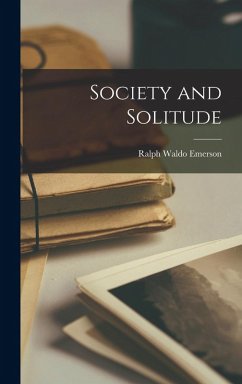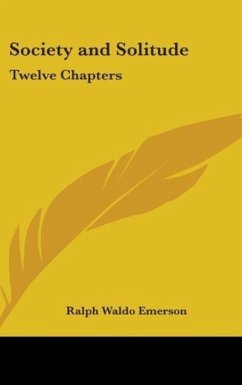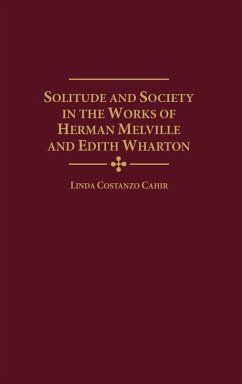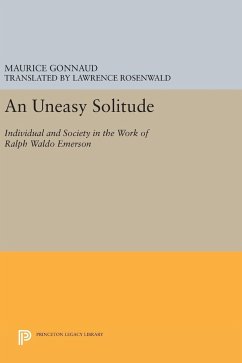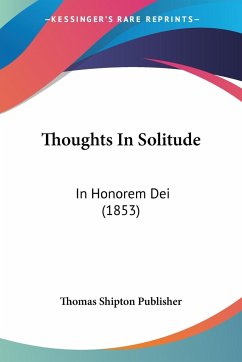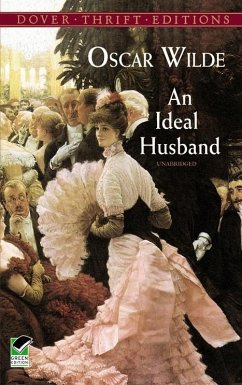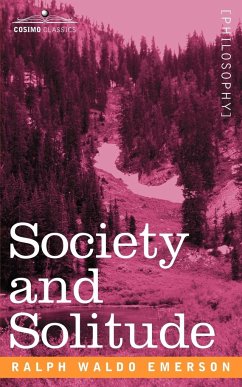
Society and Solitude
Versandkostenfrei!
Versandfertig in 1-2 Wochen
24,99 €
inkl. MwSt.

PAYBACK Punkte
12 °P sammeln!
Perhaps no writer has so dramatically shaped the course of American philosophy as Ralph Waldo Emerson, whose meditations on spirituality, freedom, and the power of knowledge have informed and inspired generations of activists, scholars, and thinkers. Published in 1870, Society and Solitude is Emerson's last great work, a collection of lectures he delivered on tour, in which he found profound insight on such seemingly prosaic topics as Art, Eloquence, Domestic Life, Books, Courage, Success, and Old Age. "A man builds a fine house; and now he has a master, and a task for life; he is to furnish, ...
Perhaps no writer has so dramatically shaped the course of American philosophy as Ralph Waldo Emerson, whose meditations on spirituality, freedom, and the power of knowledge have informed and inspired generations of activists, scholars, and thinkers. Published in 1870, Society and Solitude is Emerson's last great work, a collection of lectures he delivered on tour, in which he found profound insight on such seemingly prosaic topics as Art, Eloquence, Domestic Life, Books, Courage, Success, and Old Age. "A man builds a fine house; and now he has a master, and a task for life; he is to furnish, watch, show it, and keep it in repair, the rest of his days," says Emerson in his lecture here on "Works and Days." Such penetrating wit and wisdom continues to speak to us today. American poet and philosopher RALPH WALDO EMERSON (1803-1882) was a driving force behind the Transcendental Movement of the early 18th century. He studied at Harvard Divinity School; however, after a crisis of faith embraced individualism, rejected authority, and despaired of spiritless Christian conventions. His works include the essay collection Nature, Conduct of Life, and Parnassus, a poetry chapbook as well as Compensation and Self-Reliance from his lecture series.





